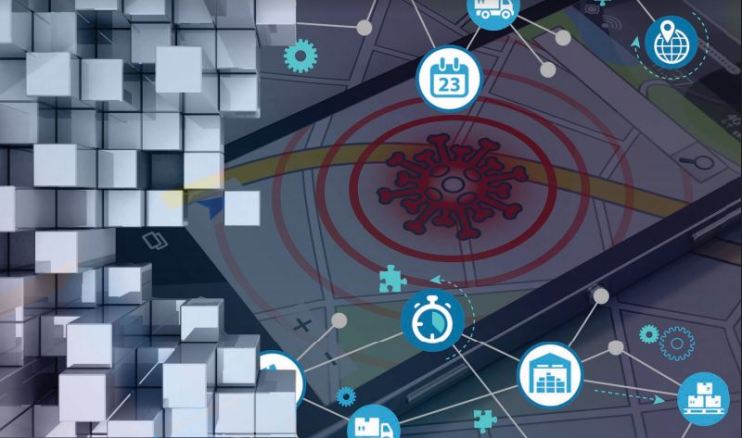The Building Blocks Of Recovery

It would be an understatement to say that the fight against COVID-19 has been a challenging one. This completely unprecedented situation has no easy solutions and people are making decisions that they have never had to make in the past, with very little or no evidence to go on. It is very much unchartered waters, and we are all doing our best to navigate through it.
Making sense of this battle is hard because there are so many different questions, so many different facets that we need to answer, and people are confusing the answer to one question with the answer to another! How do we test people at scale? How do we support the economy? How do we track immunity? Hundreds of teams around the world are working to find the answers to these questions and more, while the world waits impatiently (and justifiably so) for answers so that life can return to “normal” or as close to normal as possible.
However it is important to note that when medical science uses words like “immunity” or “protection”, they are forming these opinions on many years of research. Suddenly experts are being asked to provide the same levels of surety based on mere months or even weeks worth of observations. This lack of accuracy or confidence in projections is an inevitable product of trying to compress what normally takes years to accomplish. As already mentioned, these are truly unprecedented times.
With this in mind, it is of the utmost importance to build a framework creating a COVID-19 management system, with blockchain technology and data at its core.
Creating Complete COVID-19 Management Ecosystem
This management system is made up of five key building blocks; immunity passports, testing protocol, a robust supply chain, contact tracing and using analytics and insights.
Immunity Passports are not a new concept and throughout this pandemic there has been several debates and conversations about their use in fighting the virus. One of the biggest points of controversy is around the data. Who owns it? What is it being used for? However, these fears should be addressed by creating passports that act as a self-sovereign record of an individual’s symptoms and test results, which is fully owned by the user and never leaves their possession or is accessed by a third party.
An Immunity Passport is not much use however if the other building blocks are not working or not in place, with testing needing to be agile and robust to changes (which are daily), a test supply chain that is able to source the kit and equipment and an understanding of how the disease is spread. Finally, insight into all the above data that the above brings is vital, allowing decision makers to make the decisions they need to make with the best information that they can possibly get.
Analytics and data is probably the most important of the foundations of the ecosystem. You want to be able to provide decision makers the most current data and insight so that they make informed choices. It allows you to monitor both the infection and the immunity geographically, giving you the chance to analyse change, forecast likely future outcomes based on this real-time analysis. It means that you can track the success and operation of the testing effort and the efficiency of the test supply chain, allowing you to be agile when problems occur. And, most excitingly, it gives you the freedom to scan for new test methods, protocols and research results as they happen.
Making the Ecosystem Work
Mobilising the above in an acceptable manner for it to be widespread requires firm adherence to a set of design principles with self sovereign data at its very crux. Information about the individual never leaves that individual’s possession, meaning no central database of people or their test results that can be accessed by others. The easiest way to achieve self-sovereign data is for data about an individual to never leave their phone. But while over 70% of the UK population have access to smartphones, some of the people most vulnerable to Covid-19 are also the least likely to have a mobile device. Any solution must fully work for the whole population, not just the privileged majority.
Distributed ledger technology is a key enabler for this solution in a number of areas, be it validating the self-sovereign data on a user’s phone, making it much harder to hack or providing traceable, auditable, immutable, and anonymised record of test results and observations. Leveraging the wide body of amazing work that has already been done in the area of blockchain supply chain track and trace as a delivery accelerator, to make supply chain provenance capability available much sooner than if it had to be built from scratch.
It is all very well having a number of different tools in a toolbox but if not used in the right order, or as part of not in the right way then the task at hand is going to be harder. By creating an ecosystem based on self-sovereign data and distributed ledger technology, you will be able to create a coherent, flexible and secure solution that can be rolled out in order to get us “back to normal”.
Areiel Wolanow, CTO and Technical Architect at BLOK BioScience in conversation with James Bowater. Ariel has worked on projects across the globe and specialises in DLT, financial inclusion as well as alternative banking and insurance models. He has addressed the G20 and other major worlds forums and advises central banks, financial regulators and the UK Parliament on blockchain and financial inclusion.
For further information visit https://blokbioscience.com
BLOK BioScience is part of the BLOK Group. With a network of Global experts and a robust and far-reaching supply chain, it provides trusted and authentic solutions to help respond to the rapidly changing population wellness landscape. BLOK BioScience is working closely with governments to enable economic recovery in a post – COVID 19 world.